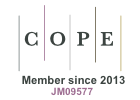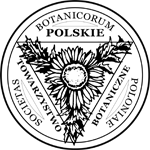Abstract
In the period 2009-2011, a study was conducted in a greenhouse, using fertigation, to determine water relations and fruit yield of tomato grown in different substrates. Tomato plants were grown on rockwool slabs, 15 dm3 in volume, and on slabs of the same volume made of the following straw chaff: rape straw; rape straw + peat (3:1); rape straw + pine bark (3:1); triticale straw; triticale straw + peat (3:1); triticale straw + pine bark (3:1). 2 tomato plants were grown on each slab, leaving 22 fruit clusters on each plant during the period from February to October. The obtained results showed that water potential, stomatal conductance, transpiration, water saturation deficit, and leaf free proline content in tomato grown on rockwool and on rape or triticale straw chaff substrates did not differ statistically significantly. Also, no significant differences were found in marketable tomato fruit yield and dry matter content in tomato fruits. Peat or pine bark addition to rape or triticale straw substrates had no significant effect on the change in their commercially useful traits. In the opinion of the present authors, substrates made of rape or triticale straw alone, and even more so with the addition of peat or bark, are not inferior in any way to commonly used rockwool.
Keywords
tomato; fertigation; organic substrate; water potential; stomatal conductance; transpiration; water saturation deficit; free proline content; dry matter






